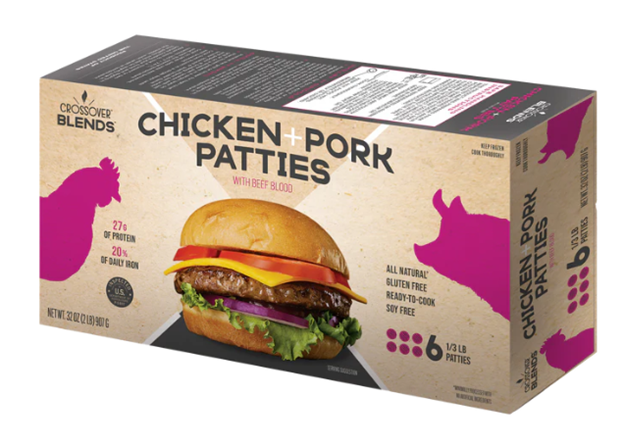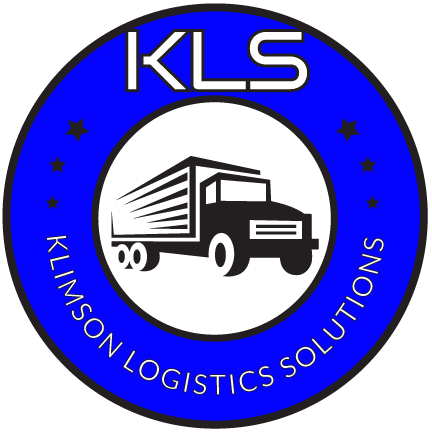Crossover Quality Meats: Real Meat. Made Better.
- KLS

- Sep 23
- 7 min read
For the 205th feature of our "Together Talks" campaign, we collaborated with Crossover Quality Meats and Founder and CEO, Michelle Adelman. Crossover Meats is on mission to revolutionize ground meat. Their patented, all-natural burgers are delicious, affordable, convenient, better for you & 50% more sustainable than conventional beef burgers. No MSM/MSC, soy, gluten, artificial additives or fillers. Available through Tony's Fine Foods/UNFI. Corporate billed Sysco, US Foods. Daymon national retail broker. Now available at Giant Food, GIANT, Food Lion and Walmart.

"Together Talks" feature # 205: Crossover Quality Meats presented by KLS - Your Trusted Shipping Solutions In The USA
What separates you from your competition? What have been the biggest challenges? Goals for upcoming year + Next phase of the company?
What were your concerns to transition to starting your own business? How have you dealt with being the face of the company?
What aspect of entrepreneurship do you appreciate the most? Do you have a moment that brings you the most joy? What is next Piece of Advice
Story of how it was created?
We started Crossover Meats in 2019. Crossover grew out of a series of businesses I have been investing in and launching since 2012, which is when I first began working in food and CPG (consumer packaged goods) as an entrepreneur. My focus for the past 10 years has been on building sustainable food companies.
My first business was a controlled-environment agriculture company called GoFresh!. We built high-tech hydroponic greenhouses in the desert in Botswana in Southern Africa. These greenhouses used just 2% of the water required for traditional farming and dramatically reduced transportation miles—taking food that used to be trucked in 1,000 kilometers from Johannesburg and growing it locally, within 25 kilometers of the customer.
Through building GoFresh! having developed strong relationships with retailers and food service operators in Southern Africa, I turned my focus to protein. By 2050, we’ll have 10 billion people on the planet. Scientists have warned that if we don’t change the way we produce protein—especially meat and dairy—our current system won’t be able to scale without causing massive environmental damage.
I began exploring plant-based foods as a healthier and more sustainable alternative. In Africa, per capita meat and dairy consumption is far lower than in the U.S., but demand is growing quickly as populations expand and move into the middle class. I started a distribution company called Infinite Foods, which brought leading plant-based brands like Beyond Meat, Oatly, Just Egg, and Violife to African markets.
That business was thriving pre-COVID, and through my relationships in the plant-based industry, I met one of the researchers at Stanford who was studying the molecular make up of meat – the same research that led to Impossible Foods. Their research broke down meat into its core components—protein, fat, and hemoglobin. Impossible Foods showed how those could be replicated with plants. But the big challenge was behavioral change: asking consumers to stop eating meat and switch to plant-based alternatives is a huge leap, and adoption in the U.S. has remained below 1.3% of retail meat sales.
Pat’s co-researcher proposed a different approach: if we want to make meat healthier and more sustainable, why not keep it real but make it better? Our patented process replaces 60% of the lean beef protein in a ground product—like burgers or ground beef—with lean chicken, leaving the fat and hemoglobin the same. This simple swap cuts the carbon footprint by half while preserving the exact taste and texture of beef.
That’s how Crossover Meats was born. Our goal is to create a bridge between plant-based alternatives and conventional meat—real meat, made better for people and the planet.
What separates you from your competition?
The blended protein category is just beginning to emerge – although this is in some ways ironic since hotdogs, sausage, deli meat – all sorts of existing products -- rely on blending. We’re seeing beef-and-mushroom blends and products that mix meat with vegetables or plant proteins, but what sets us apart is our patented process and recipe and our scalability. This gives us a strong competitive moat.
We’ve had a busy summer, sampling over 14,000 customers at events. The feedback we hear most often is, “Don’t mess with my meat.” Consumers don’t want mushrooms, soy, or ultra-processed ingredients—they want meat to be meat.
Our product delivers exactly that: 100% real meat, simply processed, with high-quality ingredients. Because chicken protein holds moisture better than beef protein, we can grind our product leaner—85% lean compared to the 75% lean burgers common in the frozen section—while still keeping it juicy and flavorful. This means fewer calories, less fat, high protein, and plenty of iron, all without the long ingredient lists you see on many turkey, plant-based burgers or lower cost beef patties.
What have been the biggest challenges?
Our biggest challenge was that we never intended to launch in retail first—we thought food service would be the natural starting point. Our product is frictionless in the kitchen, cooks just like ground beef, pork, or lamb; delivers better moisture retention and holding performance; takes spices beautifully and has less shrink which is perfect for institutions and foodservice chains.
But coming out of COVID, food service operators were facing supply chain and labor challenges and were hesitant to change anything in their kitchens. So when we landed our first retail deal, we pivoted and focused on building a retail footprint.
Today, we’re in over 1,800 retail outlets along the East Coast, with launches in New York City (D’Agostino’s, Gristedes, Foodtown), Food Lion, GIANT and select Walmarts in Texas, Southern California, and Louisiana. Our next milestone is 2,500 stores, which we see as a first tipping point, and we’re pushing toward 5,000 and beyond.

Goals for upcoming year + Next phase of the company?
We have three main goals:
1. Retail Expansion: We’re launching our one-pound bricks of ground beef, pork, and lamb into the fresh meat section—moving beyond the freezer aisle.
2. Food Service Growth: We’ve just landed our first K-12 school and our first sports stadium accounts. Several colleges, universities, corporate cafeterias and healthcare institutions are in the pipeline, and we’re investing heavily in this channel to complement our retail business.
3. Balanced Portfolio: We believe a presence in both retail and food service is critical. They complement each other for brand building and scale.
What were your concerns to transition to starting your own business?
Interestingly, I’m vegan. I stopped eating meat and dairy years ago while working in Africa and building Infinite Foods. It might seem odd that a vegan would start a meat company, but when I learned about this patented process, everything clicked.
Since plant-based alternatives have only reached 1.3% market share, they’re not going to solve the protein challenge of 2050. We need solutions that meet consumers where they are. Poultry is widely accepted globally, easier to scale, and more environmentally sustainable. By using it to improve the environmental footprint of beef, we can create a truly scalable, meaningful impact—reducing deforestation and carbon emissions in a way that plant-based alone cannot.
How have you dealt with being the face of the company?
I’m probably not as visible as you might expect. Because I don’t eat meat, I focus more on communicating our mission—meeting consumers where they are and creating a healthier, more sustainable food system.
People respect that if I’m going to run a meat company, I’m committed to doing it the right way—with simple, high-quality ingredients, excellent partners, and a truly delicious, nutrient-dense product.

What aspect of entrepreneurship do you appreciate the most?
After 25 years at Accenture, I was used to working with big teams and large-scale projects. Entrepreneurship is scrappier—you roll up your sleeves and do whatever it takes.
Because we’re privately funded (not VC or PE backed), I’m very thoughtful about how we spend money. It can feel like carrying a big weight on your back, but it’s also deeply rewarding.
I spent 10 years working in Africa and emerging markets with disadvantaged women, and that work had a direct impact on their ability to earn a living and support their families. Moving back into the U.S. business world has been an adjustment, but building a company that addresses a global sustainability challenge and a healthier food system is my way of making an impact again.
Do you have a moment that brings you the most joy?
Seeing our product on store shelves never gets old. I’ve personally visited over 100 retail stores since March, meeting managers and sharing our story.
But my proudest moment this year was working with Northampton Community College’s culinary students. They developed recipes using our products, then pitched Sodexo—their food service operator—on why they should add Crossover Meats to the college cafeteria menu.
Sitting in the back of the room and watching these young culinarians advocate for our product—not just for its taste and culinary performance, but for its health and sustainability impact—was incredibly moving. It gave me confidence that the next generation truly cares about these issues.

What is next
We’re putting together a Chef’s Advisory Board made up of diverse voices from the culinary world. Their feedback will be invaluable as we continue to refine our products and expand into new channels.
Piece of Advice
Take risks. Be willing to do something that doesn’t “fit the mold.” People would never have expected a vegan to start a meat company, but if you see an opportunity and believe in it, go for it.
It truly takes a village to build a business—sales brokers, marketing partners, distributors, food service operators—so seek help and build relationships. You have to keep showing up every day and keep pushing forward.
Promo Code
Purchase off of their site, Crossover Quality Meats
KLS10 -> 10% off
Community Callout
Megan Witt - Johnsonville She has been my mentor through the Women in the Meat Industry mentorship program. She’s been incredibly generous with her guidance and insights.
She embodies what it means to support women in the industry and has been a champion for values-driven decision-making.
In Closing
KLS wants to thank Crossover Quality Meats and Founder and CEO, Michelle Adelman, for today's "Together Talks" feature. Follow along for their journey with their social handles below!




Comments